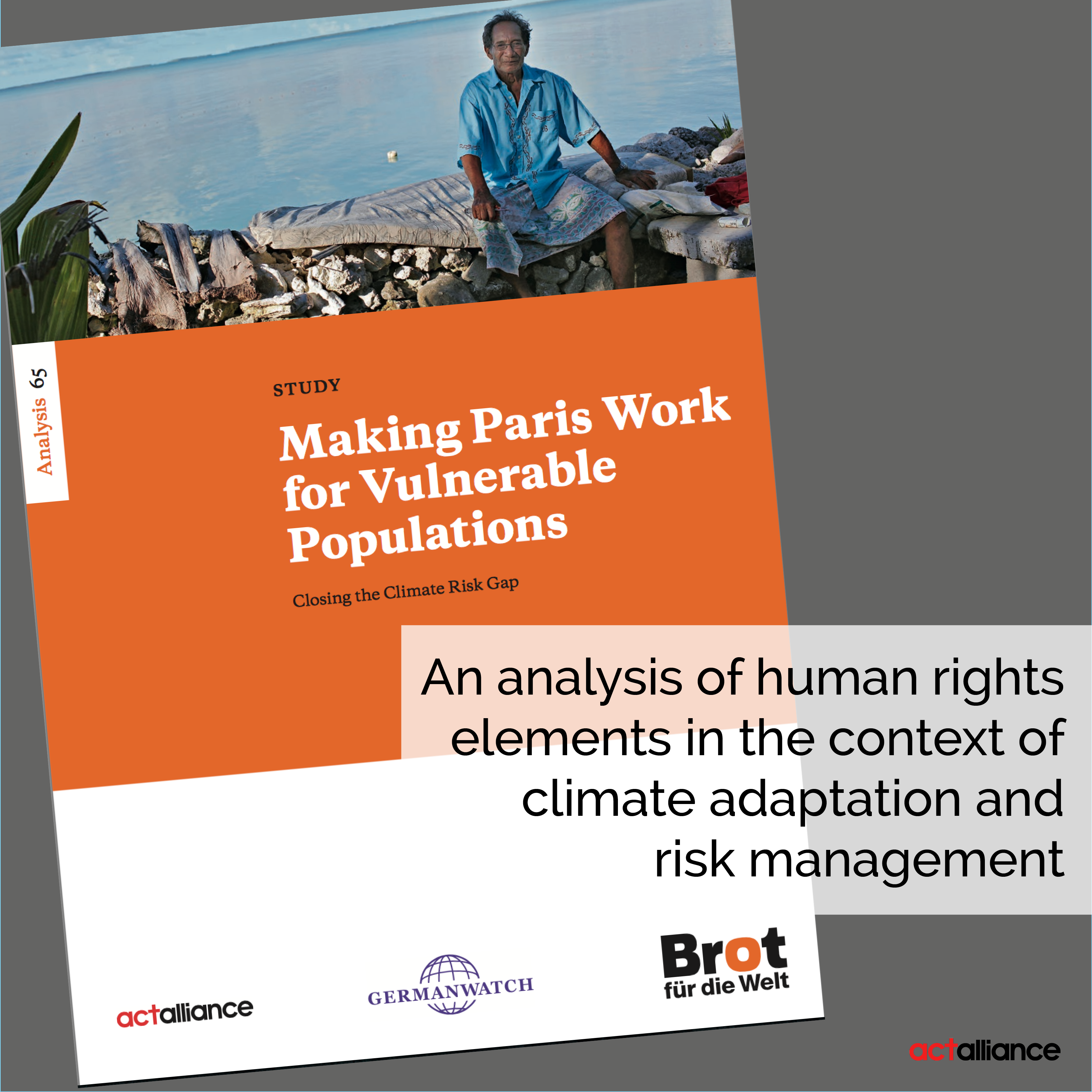Precious time that could have been used to take action has already been lost over the past few decades because of the lack of political will and opposition by major carbon emitters. We no longer have the time to rely on action taken in small steps. Rather, we need long-term policy frameworks, a change of path dependencies, and new business models and livelihoods. We will only be able to contain the biggest risks linked to climate change by transforming the energy, transport and agricultural sectors and finally reaching a carbon-free and resilient stage of development.
The transformation must start by ensuring that the human rights of the people most affected by climate change are secured. Such an approach turns victims of climate change into rights-holders who can participate and are empowered; and it enables them to become agents of transformational change.
Human rights have to be mainstreamed in societal discourse and translated into regulatory political frame- works and binding rules for the business sector. Moreo- ver, we need to make technological choices that minimise the threats posed to human rights.
We are committed to fostering the human rights- based approach in the implementation of the Paris Agreement. Moreover, we intend to work towards including the most vulnerable people and seeking cooperation with civil society and governments, globally, nationally, and locally.
Read the study HERE
